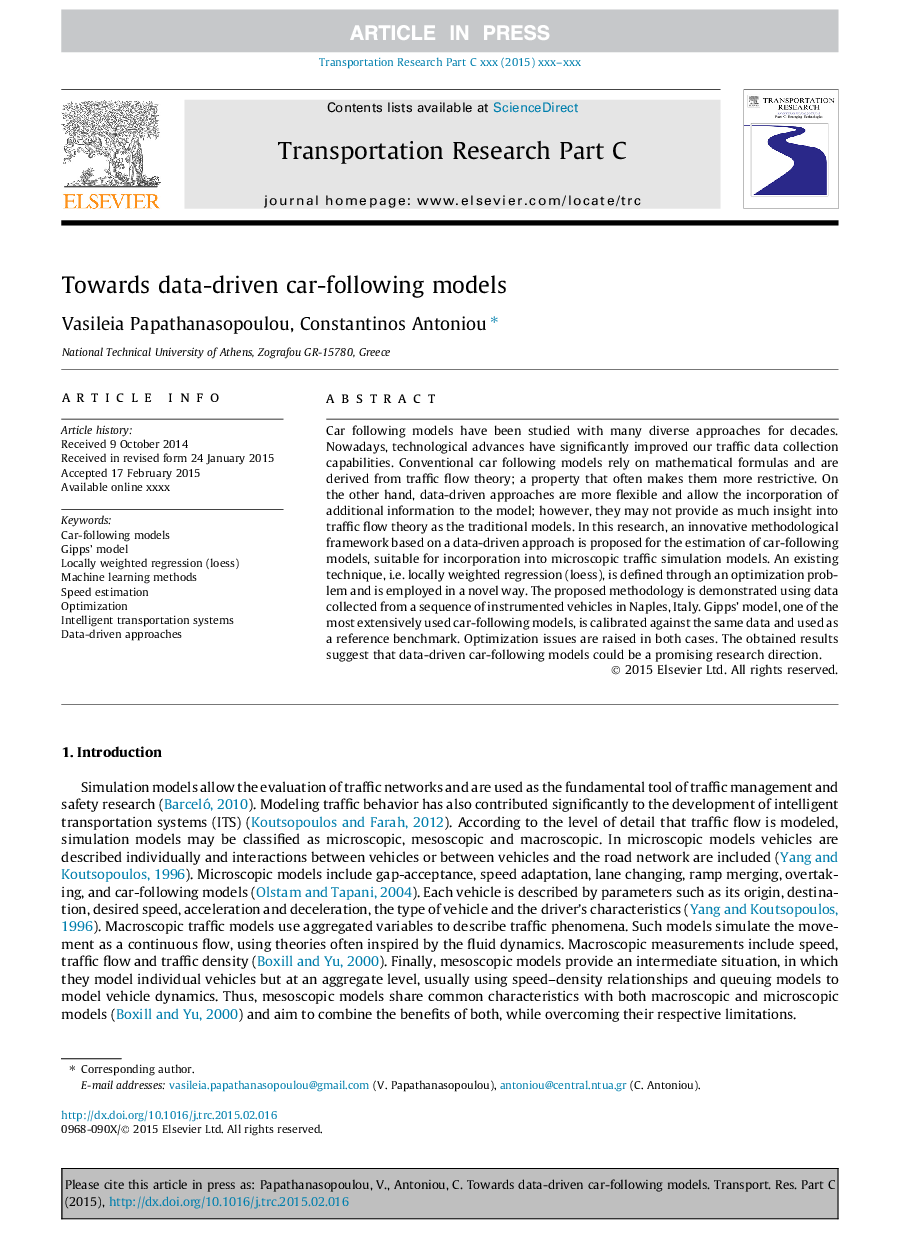| Article ID | Journal | Published Year | Pages | File Type |
|---|---|---|---|---|
| 6936856 | Transportation Research Part C: Emerging Technologies | 2015 | 14 Pages |
Abstract
Car following models have been studied with many diverse approaches for decades. Nowadays, technological advances have significantly improved our traffic data collection capabilities. Conventional car following models rely on mathematical formulas and are derived from traffic flow theory; a property that often makes them more restrictive. On the other hand, data-driven approaches are more flexible and allow the incorporation of additional information to the model; however, they may not provide as much insight into traffic flow theory as the traditional models. In this research, an innovative methodological framework based on a data-driven approach is proposed for the estimation of car-following models, suitable for incorporation into microscopic traffic simulation models. An existing technique, i.e. locally weighted regression (loess), is defined through an optimization problem and is employed in a novel way. The proposed methodology is demonstrated using data collected from a sequence of instrumented vehicles in Naples, Italy. Gipps' model, one of the most extensively used car-following models, is calibrated against the same data and used as a reference benchmark. Optimization issues are raised in both cases. The obtained results suggest that data-driven car-following models could be a promising research direction.
Keywords
Related Topics
Physical Sciences and Engineering
Computer Science
Computer Science Applications
Authors
Vasileia Papathanasopoulou, Constantinos Antoniou,
